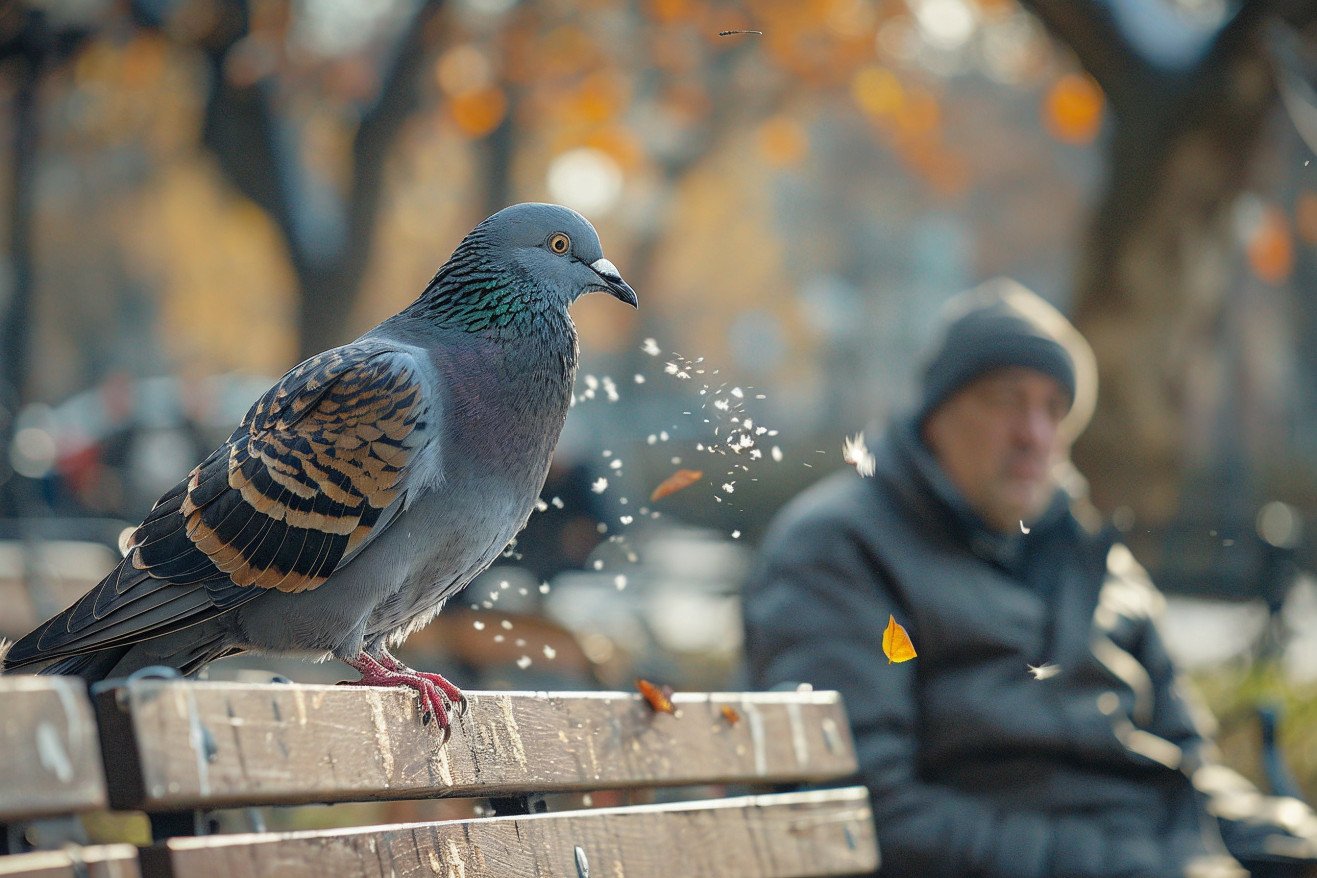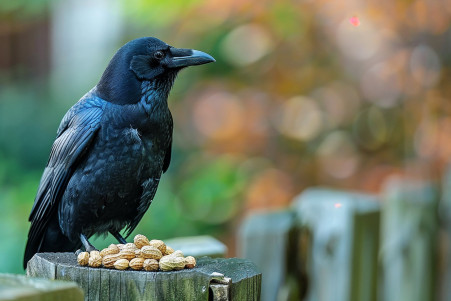Bird Poop Meaning: What Does It Mean If a Bird Poops on You?
2 April 2024 • Updated 2 April 2024

The common belief that bird poop is a sign of good luck has led many to question the true meaning of this unfortunate occurrence. In reality, being pooped on by a bird is nothing more than a random act of bad luck. There is no evidence to suggest that bird poop has any predictive or superstitious meaning other than the fact that you have to clean it up.
Although the idea that bird poop is a sign of good luck is often repeated, there is no scientific evidence to back up this claim. To find out what it really means when you're suddenly hit by a bird's droppings, we'll look at the work of ornithologists, animal behaviorists, and cultural anthropologists. By taking an interdisciplinary approach, we can learn about the facts of bird defecation and the many cultural meanings and myths surrounding the experience.
Does bird poop have any spiritual or symbolic meaning?
Cultural and Spiritual Symbolism of Bird Poop
The idea that bird poop is a sign of good luck, wealth, blessings, or positive change is common in many cultures. Birds are often considered spiritual messengers, so their poop is sometimes interpreted as a message or sign from the divine.
In Catholicism, birds are considered "angels in disguise", and being pooped on is thought to be a sign that good things are coming. Turkish and Italian cultures also consider it a sign of good luck, prosperity, and positivity. Hinduism considers pigeon poop lucky but crow poop can be a sign of spiritual growth or trouble.
Many cultures associate bird poop with renewal, fertility, and spiritual cleansing. In some Eastern traditions, it can be a sign of releasing the past to make room for the future. It can also be a sign of the soul being cleansed of negative energy. The location of the poop, such as on your head, body, or possessions, can also determine its meaning, such as signifying wealth if it lands on your car.
That said, not all cultures consider bird poop lucky. In many Western cultures, it’s more likely to be seen as a nuisance than a sign of good luck, although certain birds, like owls, are an exception. The time of day can also be a factor, with different meanings for bird poop at night versus during the day. These different interpretations show that people tend to assign meaning, whether positive or negative, to unusual occurrences. As we delve into the practical implications of bird poop, it’s important to keep an open mind.
Health Risks and Precautions: Bird Droppings
Bird droppings can carry a number of health risks, including the potential to spread diseases such as psittacosis, histoplasmosis, and salmonellosis. According to the Health and Safety Executive, these diseases can be transmitted by inhaling dust or water droplets that have been contaminated with the bacteria or fungi that cause the diseases.
People with weakened immune systems and those who work in environments where they are frequently exposed to birds are at a higher risk. NYC Health notes that the risk is generally low but recommends that people who are immunocompromised avoid contact with bird droppings.
To clean and disinfect areas that have been contaminated with bird droppings safely, WorkSafe Queensland suggests using dust barriers, ventilation controls, and wetting down the droppings to prevent the spread of contaminants. Good personal hygiene, including thorough handwashing and the use of personal protective equipment, is essential. They also recommend seeking medical attention if you develop symptoms.
By learning about the potential health risks and taking the right precautions, people can protect themselves from the health risks of bird droppings and stay healthy.
Bird Behavior and Defecation
Birds' digestive systems are unique, which is why their defecation patterns are so different from those of other animals. As noted by 10,000 Birds, birds have combined excretion and defecation into a single process, which is why their droppings are made up of two parts - a black solid waste portion and a white uric acid portion. Birds have evolved to conserve water by excreting nitrogenous waste as uric acid instead of the urea that mammals excrete, which is more water-soluble.
The color and content of bird poop can also be impacted by the bird's diet. For example, IntobirdsIntobirds notes that birds that eat a diet that's high in fish will have droppings that are mostly white because fish can be almost completely digested. On the other hand, birds that eat a diet that's high in indigestible materials like bones or exoskeletons will have droppings that are mostly solid waste.
In addition, the color of a car can impact where birds choose to defecate. A study in England found that red cars were the most likely to be targeted by birds, followed by blue and black cars. While it may seem like birds are intentionally targeting specific people or objects, A Physics Blog For The Curious notes that the likelihood of being pooped on by a bird is completely random and depends on the density of the bird population and the rate at which birds poop. It's important to maintain this kind of objective, scientific viewpoint to understand the natural phenomena that seem so random.
Dealing With the Emotional Fallout of Bird Poop
Getting pooped on by a bird can lead to a number of emotional responses, from embarrassment and annoyance to outright disgust. As noted by Psychology Today, these reactions are often linked to social anxiety and the fear of being judged by others. The suddenness and lack of warning that comes with the experience can lead to feelings of self-consciousness and a loss of control.
While it may be difficult to overcome these feelings of embarrassment, there are ways to deal with them. Psych Central suggests that people can practice self-compassion by using positive self-talk and can face the situation instead of avoiding it. Other ways to help restore a sense of calm include deep breathing and using humor. The important thing is to keep things in perspective and not let a relatively small event have a big impact on your self-esteem and mental health.
If you find that you're having a hard time letting go of your feelings of embarrassment or anxiety after being pooped on, it may be helpful to talk to a mental health professional. As pointed out by Alix Needham Hypnotherapy, hypnotherapy can be a useful way to reframe your thinking and break the cycle of blushing and embarrassment.
Conclusion: Making Sense of Bird Poop
In conclusion, the superstitions surrounding bird poop are not based on scientific evidence. Instead, being pooped on is likely to be a random event with no deeper meaning or significance.
It is important to keep a rational, evidence-based perspective on the experience and focus on taking appropriate precautions to protect your health and well-being. By using humor and resilience to deal with the experience, people can better manage the practical and emotional aspects of this common, if unpleasant, event.


